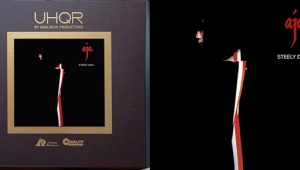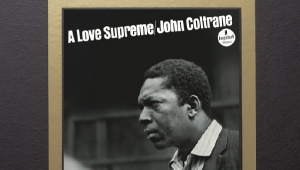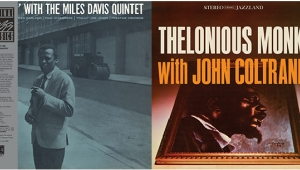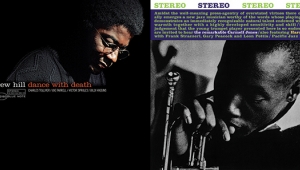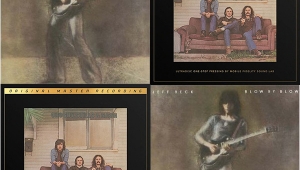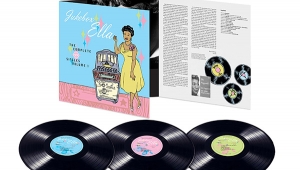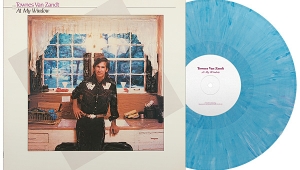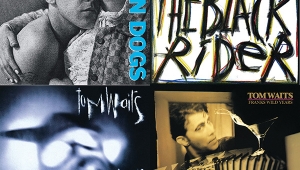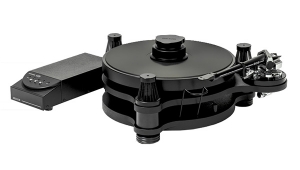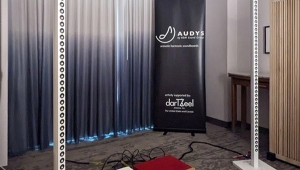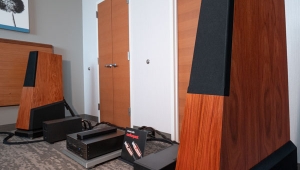| Columns Retired Columns & Blogs |
Revinylization #45: Charles Mingus's Changes: The Complete 1970s Atlantic Studio Recordings
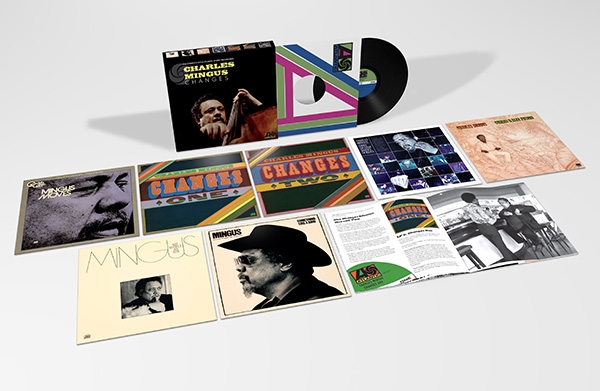
The standup bass genius and jazz force of nature Charles Mingus made his first album for Atlantic Records, Pithecanthropus Erectus, in 1956. Several of his most memorable musical masterpieces, including The Clown (1957), Blues and Roots (1960), and Oh Yeah (1962), followed as he intermittently returned to the label throughout the 1960s and early '70s. Beginning in 1974 with Mingus Moves, the cigarillo-chomping, famously gruff Mingus recorded most of his final albums for the label as he progressed from composer/player to wheelchair-bound writer and musical director. His final seven studio albums for the label and a single LP of outtakes, all freshly remastered, comprise this welcome 8-LP (or 7-CD) box-set addition to the Mingus oeuvre.
While remasterings can brighten sound and bring out heretofore unheard details, the differences here between originals and these new 180gm LPs (pressed at Optimal in Germany) are minor. That's fine; the recording quality of the original pressings was stellar, the first three engineered by Gene Paul. The LPs were sourced from digital master files. John Webber cut the lacquers at AIR Studios London.
One of jazz music's most convincing visionaries, Mingus was grounded in blues and church music, but was also a huge admirer of Duke Ellington. While both men wrote and played for ensembles small and large, it's their sweeping, dramatic creations that distinguish them most as composers. Both leaders liked surrounding themselves with strong-willed players and distinct musical personalities. Often overshadowed by the brilliance of their writing, Ellington and Mingus were instrumental virtuosos. One key difference: Within that foundation, Mingus was wilder, encompassing complex improvisation even in his larger ensembles.
This music is drawn from the last years of Mingus's career, yet the charge of riches on these albums is astonishing. The mysterious, swirling "Canon," the opening track of the first album in this set, Mingus Moves, gives way to "Opus 4," on which pianist Don Pullen's gorgeous cascades of notes and tenor saxophonist George Adams's nimble negotiations illustrate how in tune this final quintet was with Mingus's artistic aims. Those two players, along with drummer Dannie Richmond, would be key makers of the music on Changes One and Changes Two, the masterpieces at the creative heart of this box set. Recorded in three sessions just after Christmas in 1974, both albums also feature trumpeter Jack Walrath, who became an ever-larger presence in the bassist's final recordings.
Changes One is famous for the inclusion of one of Mingus's best-known masterpieces, the 17-minute, "Sue's Changes." Named for his fourth and final wife—they were married in 1975—this long suite has five themes around which the instrumentalists improvise. Mingus's connection to the blues was always deep, but it was rarely as obvious as it is in "Devil Blues." Inspired by a Clarence "Gatemouth" Brown tune, it begins with a bass solo before opening into a vocal number with George Adams's wild blues shouting. The composer's spiritual and musical connections to Ellington, who died in May 1974, just before the music on these albums was recorded, is highlighted in the Mingus composition "Duke Ellington's Sound of Love." Different versions appear on each album; the second, an arrangement by Sy Johnson, features vocalist Jackie Paris. On Changes One, George Adams's solo is particularly liquid and affecting. The shorter version on Changes Two is brassier, thanks to the extra trumpet of Marcus Belgrave. Several bandmembers' compositions were captured, including Walrath's lively "Black Bats and Poles," which is more frantically tempo'd than most Mingus numbers, eliciting fiery solos from Pullen, Adams, and its composer.
In November 1977, Mingus was diagnosed with amyotrophic lateral sclerosis (ALS)—Lou Gehrig's disease. Although he was ailing, the final two albums featuring his playing were recorded in March 1977. Three or Four Shades of Blues has long been controversial for its extensive use of guitars, both electric and acoustic, played by Philip Catherine and Larry Coryell. It includes an interpretation of Mingus's famous Lester Young tribute, "Goodbye Pork Pie Hat," first recorded in 1959 on Columbia's Mingus Ah Um. Rejected as film music, the large ensemble pieces of Cumbia & Jazz Fusion are very listenable by themselves, thanks partly to its eight added percussionists including Mingus. Growled lines from the bassist ("Who said Mama's little baby likes shortnin' bread?/That's some lie some white man upped and said!") and solos from trombonist Jimmy Knepper make this 28-minute title track very special.
The last two Mingus albums on Atlantic, Me Myself an Eye and Something Like a Bird, were recorded in New York without the composer. Confined to a wheelchair, unable to even speak, Mingus had moved to Cuernavaca, Mexico, putting his faith in what this set's liner notes call "a sorceress's remedies and a better climate." Mingus sang melodies into a tape deck, and trumpeter Walrath, Sy Johnson, Ricky Ford, and conductor Paul Jeffrey took these last utterances and built tunes and arrangements.
A final disc of outtakes is highlighted by a longtime entry in Mingus's live book, Don Pullen's "Big Alice." Recorded in 1973, this is a jazzified version of rock'n'roll, driven by the unmistakable underpinning of a Bo Diddley beat.
Like an actor's final film, a musician's last recordings can tell you a lot. They're often telling illustrations of a composer's chosen epilog, their final melodies, a denouement. Possessed by a unique vision and relentless inspiration, few composers in jazz, or in any other genre, were ever as prolific or as influential as Charles Mingus.
- Log in or register to post comments




